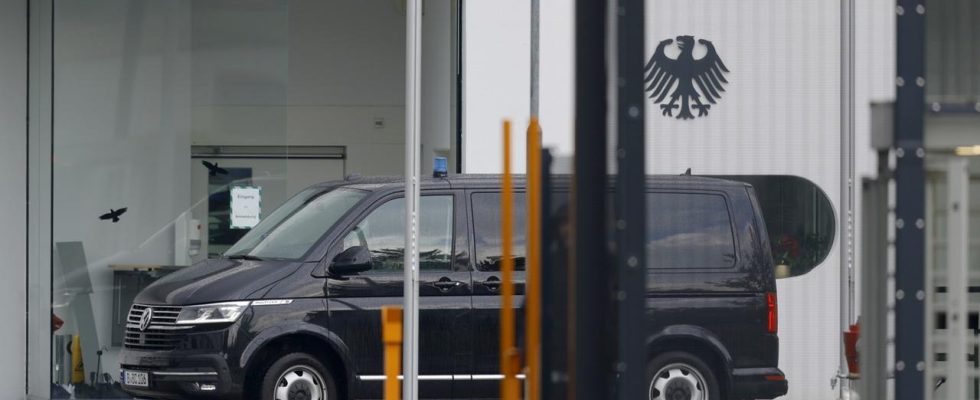The fact that the Russian ambassador was summoned shows how serious the case is: two German-Russians are said to have spied for the Kremlin and even planned attacks – with the aim of weakening German support for Ukraine.
The Federal Prosecutor’s Office has had two German-Russians arrested in Bavaria on suspicion of espionage on behalf of Russia. One of them is also accused of planning an attack. Both are now in custody.
According to the Federal Prosecutor General, the two men were involved in sabotage actions that were intended in particular to “undermine the military support provided by Germany to Ukraine against the Russian war of aggression.”
Apparently also a US base scouted
The men are “strongly suspected of having worked for a foreign secret service in a particularly serious case,” said the Federal Prosecutor General at the Federal Court of Justice. The main suspect is also accused of planning an explosive explosion and arson, acting as an agent for sabotage purposes and spying on military installations.
Both were arrested yesterday in Bayreuth. Investigators searched the men’s homes and places of work in the region around the Upper Franconian city. According to information from the dpa news agency and the mirror Among other things, they are said to have scouted out the US base in Grafenwöhr, which is located about 35 kilometers southeast of Bayreuth.
Faeser: Germany cannot be intimidated
The main accused is 39-year-old Dieter S. Nach ARD information He initially came to the attention of the security authorities because he was said to have fought armed for a brigade of separatists from the “Donetsk People’s Republic” against Ukraine between 2014 and 2016 – in an area in the east of Ukraine that Russian President Vladimir Putin later annexed in violation of international law explained.
Federal Interior Minister Nancy Faeser spoke of a “particularly serious case of suspected spy activity for Putin’s criminal regime.” Germany will continue to support Ukraine and will not allow itself to be intimidated. Federal Justice Minister Marco Buschmann said, “We know that the Russian power apparatus is also targeting our country.” Germany must respond to this threat defensively and decisively.
Kiesewetter: Focus on “AfD sympathizers”.
The chairman of the parliamentary control committee in the Bundestag, Konstantin von Notz, spoke of a “highly alarming process”. The members of the control committee “very clearly called on the federal government to investigate the numerous indications of such extensive espionage and influence operations, to recognize the scope of the threat and to react accordingly,” said the Green politician. Germany must “make itself much more robust, resilient and defensive in the future”.
Keyword: Parliamentary Control Committee
The Parliamentary Control Board – a body of the Bundestag – is responsible for controlling the federal intelligence services and monitors the Federal Intelligence Service (BND), the Military Counterintelligence Service (MAD) and the Federal Office for the Protection of the Constitution (BfV). According to the Control Committee Act, the Federal Government is obliged to inform the committee comprehensively about the general activities of the intelligence services and about events of particular importance.
The vice-chairman of the control committee, Roderich Kiesewetter, also called for consequences. “It turns out that we are comparatively poorly positioned when it comes to counter-espionage and that in many areas there is still little sensitivity to the threat posed by citizens close to Russia,” the CDU politician told the Handelsblatt. Kiesewetter also spoke out in favor of taking “extremist areas” into account. Specifically, he named “AfD sympathizers who voluntarily serve Russia” as well as German fighters in Russian mercenary troops or other Russian combat troops who returned to Germany.
Federal Foreign Minister Annalena Baerbock summoned the Russian ambassador to Berlin because of the espionage investigation. The spokesman for the Russian presidential office in Moscow, Dmitry Peskov, said he had no information about the case.

